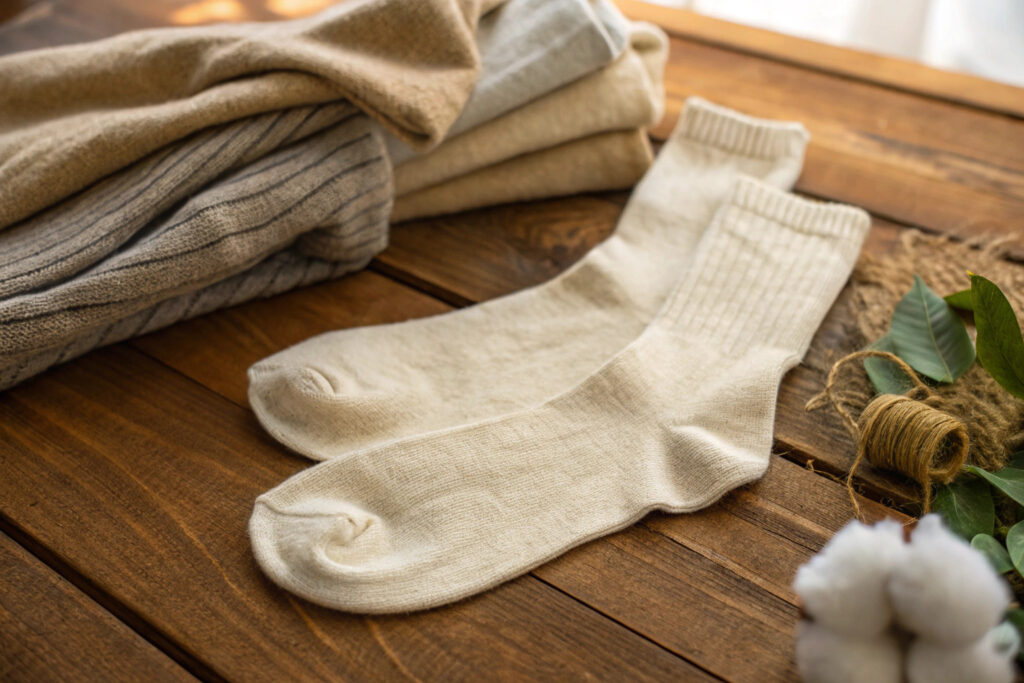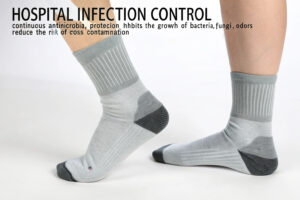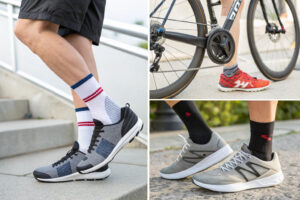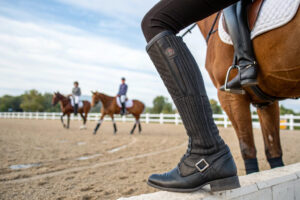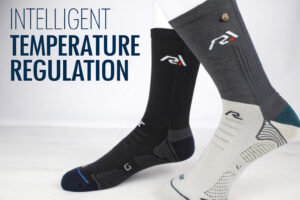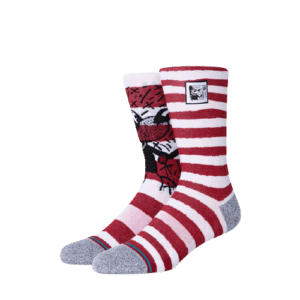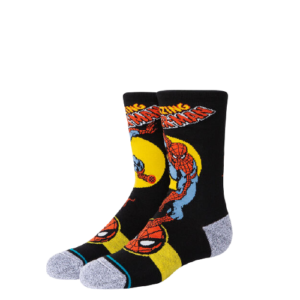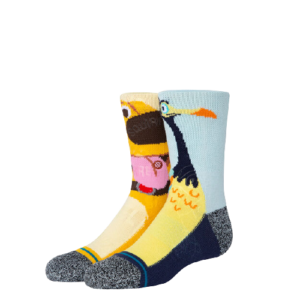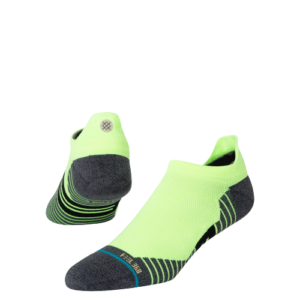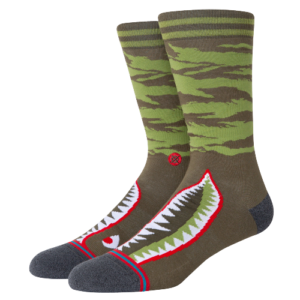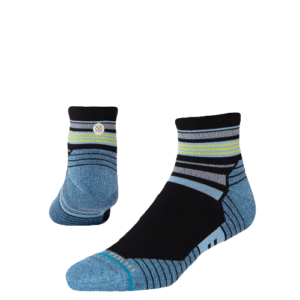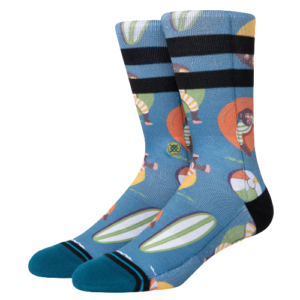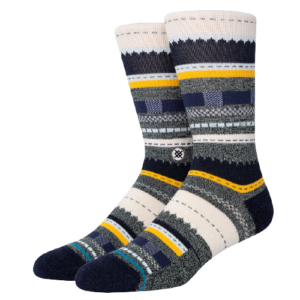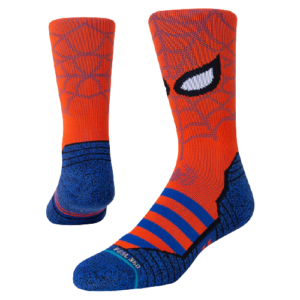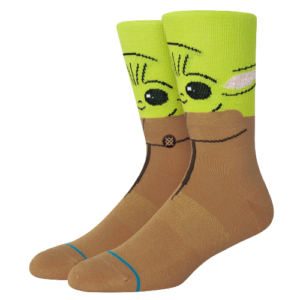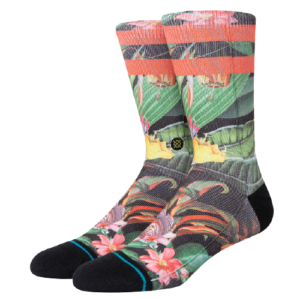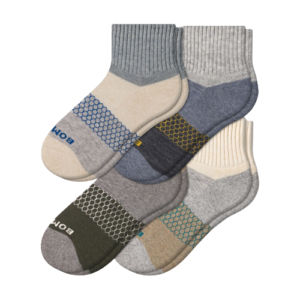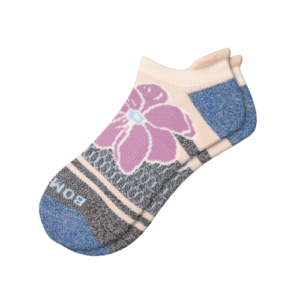Living with eczema on your feet can feel like a constant battle. The itchiness, irritation, and discomfort often make even the simplest things—like choosing the right pair of socks—a daily struggle. Many people keep buying cheap socks without realizing that the wrong material or poor design may actually worsen flare-ups. This leads to frustration, wasted money, and endless trial and error.
The best socks for eczema-prone skin are made with natural, breathable, and hypoallergenic materials such as organic cotton, bamboo, silk, TENCEL™, or medical-grade fabrics like Tepso®. These socks are designed to reduce friction, wick away moisture, and act as a protective barrier, helping to keep your skin calm, comfortable, and free from unnecessary irritation.
The good news is that you do not have to compromise between comfort and skin health. With the right knowledge, you can choose socks that not only protect your sensitive skin but also support your overall eczema management. Below, I will break down the best choices, their benefits, and what you should avoid.
Best Materials for Eczema Socks
Finding the right fabric is the first step to protecting sensitive feet. Socks made from natural fibers and skin-friendly fabrics help prevent irritation while improving breathability.
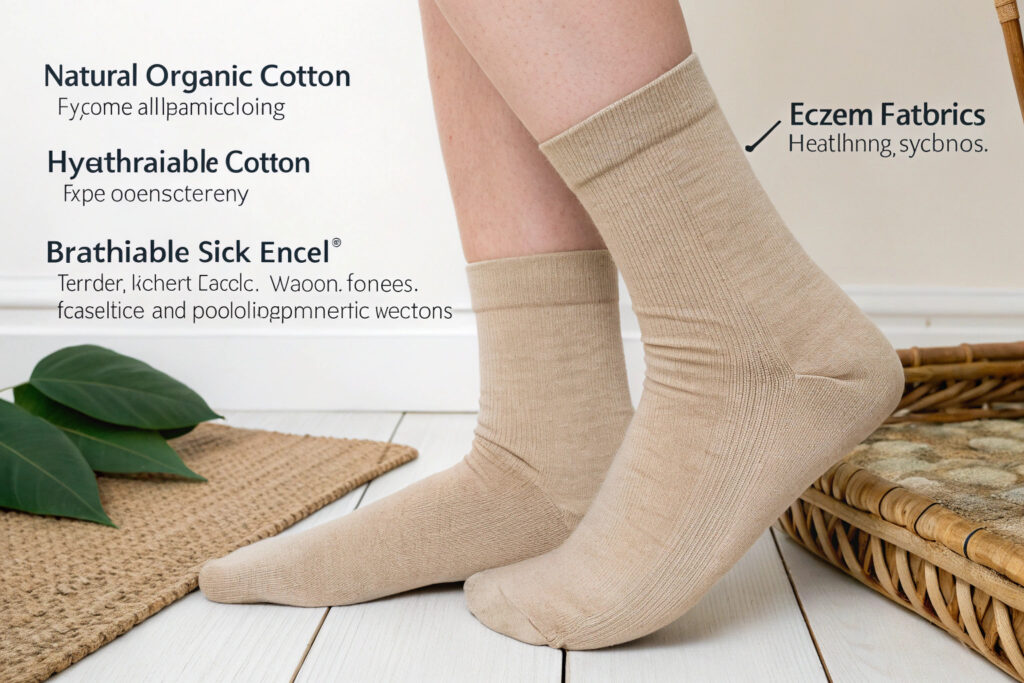
Why Is Cotton a Top Choice?
Cotton has long been recommended for eczema sufferers because it is soft, breathable, and hypoallergenic. Unlike synthetic materials that trap heat and moisture, cotton allows the skin to stay dry and cool. In fact, organic cotton socks are particularly beneficial because they avoid harsh dyes and chemicals that could trigger flare-ups. According to dermatology experts, cotton also helps absorb excess sweat, reducing the likelihood of fungal infections, which are often associated with eczema-prone skin. For those who want a safe, everyday option, cotton is a practical and affordable choice.
Are Bamboo Socks Good for Sensitive Skin?
Bamboo is another excellent material for eczema-friendly socks. Naturally antimicrobial and moisture-wicking, bamboo fibers keep feet dry while preventing bacteria growth. The material is also incredibly soft, often compared to silk, which makes it gentle against inflamed skin. Brands such as Bamigo and Q for Quinn highlight bamboo’s eco-friendly qualities, making it popular among sustainability-conscious buyers. If you are looking for socks that combine comfort, skin safety, and environmental responsibility, bamboo is a strong candidate.
Functional Features to Look For
Even the best materials can fail if the sock design is not eczema-friendly. The construction of socks plays a huge role in reducing friction and preventing flare-ups.
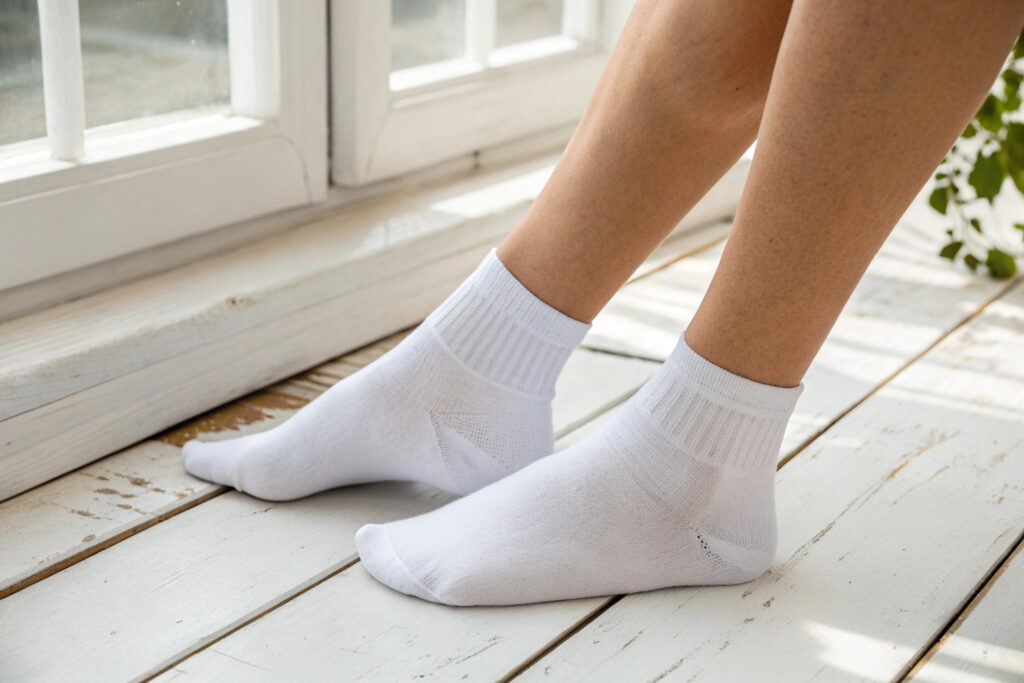
Do Seamless Socks Really Make a Difference?
Yes. One of the most overlooked triggers for foot eczema is seam irritation. Traditional socks often have bulky seams around the toes, which create pressure points and friction during movement. This can lead to redness, itching, or even skin breaks. That is why seamless or flat-seam socks are highly recommended for eczema-prone feet. For example, SmartKnit Seamless Socks are designed specifically for sensitive skin. By eliminating friction, seamless socks allow the skin to heal naturally and prevent unnecessary flare-ups.
Why Is Moisture Management Important?
Moisture control is critical when dealing with eczema. Excess sweat can irritate the skin and create the perfect environment for infections. Socks with moisture-wicking technology—like those made from TENCEL™ fibers—help regulate temperature and keep feet dry. Additionally, fabrics infused with zinc or silver have antibacterial properties that prevent odor and bacterial growth. This dual protection keeps your skin healthier while supporting a more comfortable daily experience.
Specialized Eczema-Friendly Options
For people with severe eczema, specialized socks designed with medical-grade fabrics provide extra relief. These socks are not just clothing items—they are therapeutic tools.
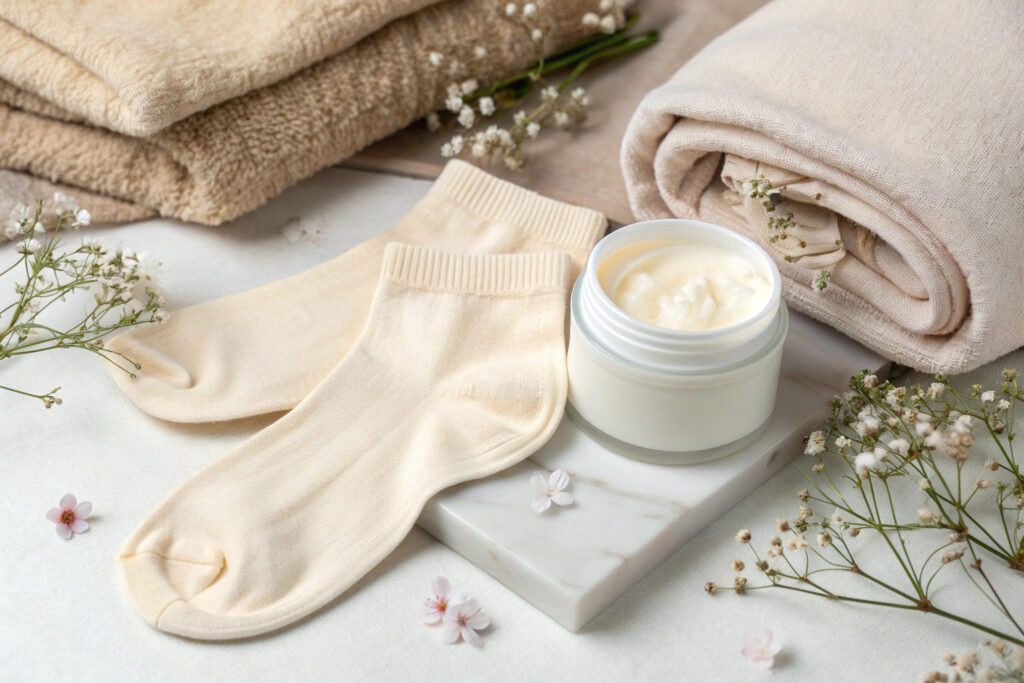
Are Silk Socks Worth the Investment?
Silk, particularly medical-grade silk like DermaSilk, is often used as a protective barrier for eczema-prone skin. It is smooth, soft, and naturally hypoallergenic. Silk socks reduce friction, allow the skin to breathe, and can even be worn over creams or ointments to lock in moisture. While they may be more expensive than cotton or bamboo, many users find the investment worthwhile for the comfort and protection they provide.
What Is Tepso and How Does It Help?
Tepso® is a revolutionary fabric designed for people with chronic skin conditions. It is ultra-smooth, breathable, and friction-free, which means it does not damage already fragile skin. Tepso socks also enhance the effectiveness of topical treatments, as the fabric allows ointments to remain on the skin instead of being absorbed into the fibers. Dermatologists often recommend Tepso for severe cases, making it one of the most advanced options for eczema sufferers today.
What to Avoid When Choosing Socks
Knowing what not to wear is just as important as choosing the right socks. Many common sock materials or designs can worsen eczema symptoms.
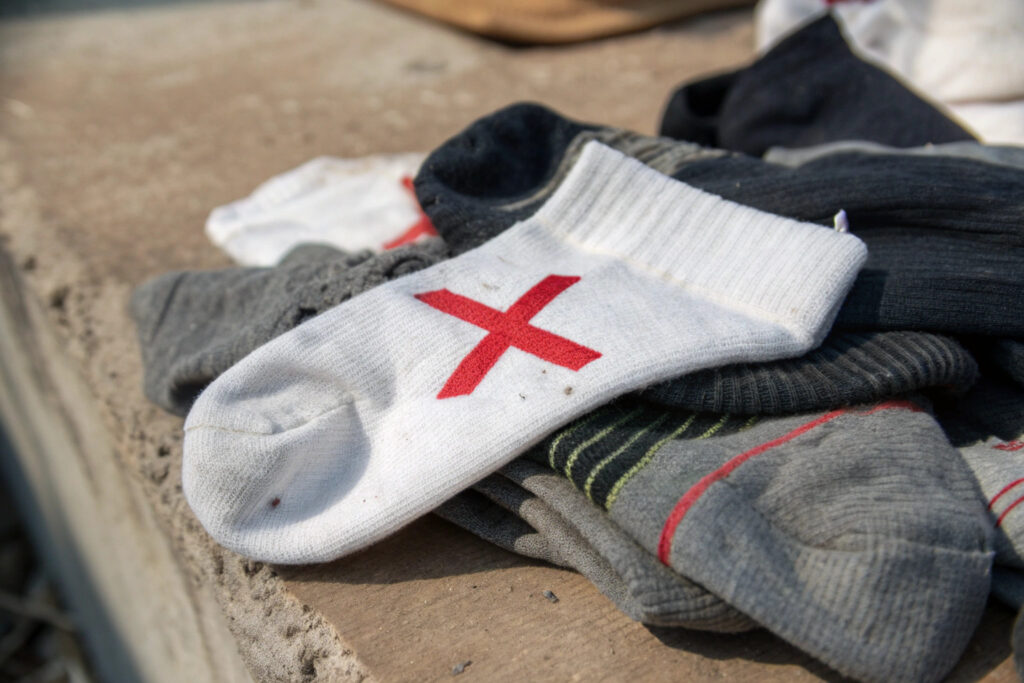
Are Synthetic Materials Harmful?
Yes. Fabrics like polyester, nylon, or acrylic are not suitable for eczema-prone feet. These materials trap heat and sweat, which can aggravate itching and inflammation. According to Verywell Health, synthetic socks are one of the main culprits behind recurring flare-ups. Although they are cheap and widely available, they do not provide the breathability or softness that sensitive skin needs.
Why Should You Avoid Tight Socks?
Tight-fitting socks can restrict blood circulation and increase pressure on already delicate skin. This not only leads to discomfort but can also worsen swelling and redness. It is always better to choose socks with a gentle, non-binding top. Brands offering diabetic socks often design them with looser fits, which are also great for eczema-prone wearers. A proper fit ensures comfort, protection, and long-term skin health.
Conclusion
When you have eczema-prone skin, the right pair of socks can make a huge difference. Natural materials like organic cotton, bamboo, silk, merino wool, and TENCEL™ provide softness and breathability, while specialized options like Tepso or DermaSilk offer advanced protection. Seamless design, moisture-wicking features, and proper fit all work together to minimize irritation and support healing. On the other hand, synthetic fibers and tight socks should be avoided at all costs.
If you are looking to source high-quality eczema-friendly socks in bulk, we at Shanghai Fumao are ready to help. Our company specializes in producing eco-friendly, functional, and skin-safe socks for global markets. To discuss your custom sock project, please contact our Business Director Elaine at elaine@fumaoclothing.com. Together, we can create products that bring comfort and confidence to your customers worldwide.

